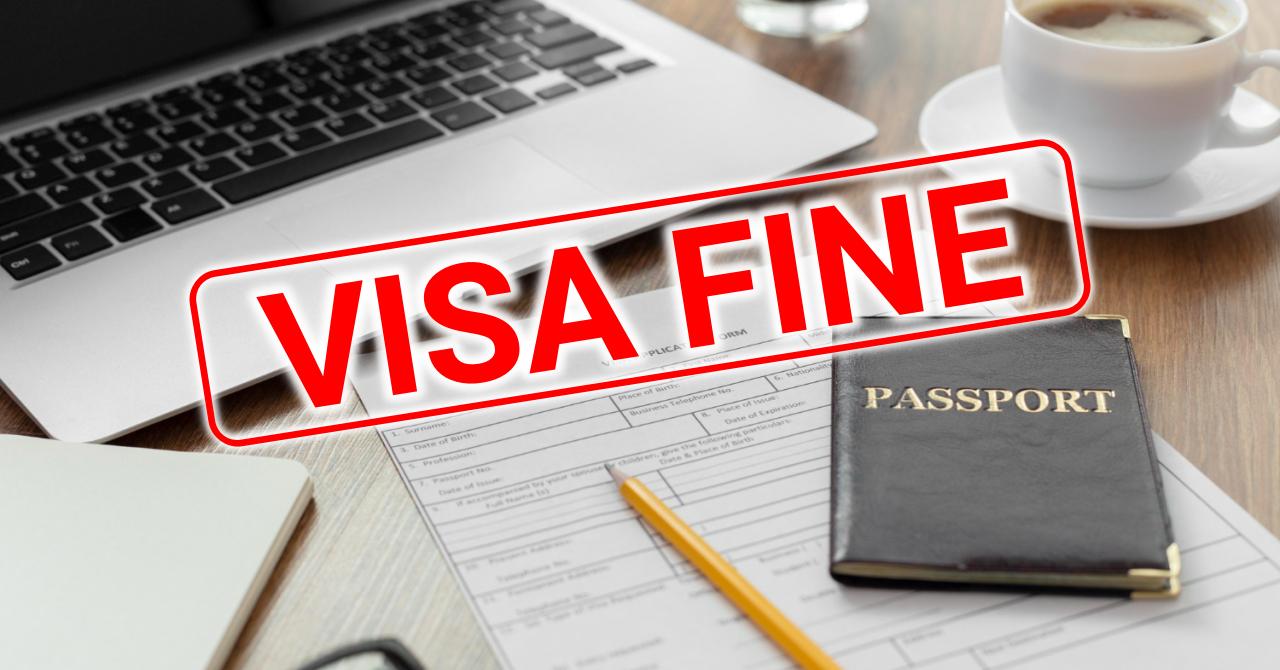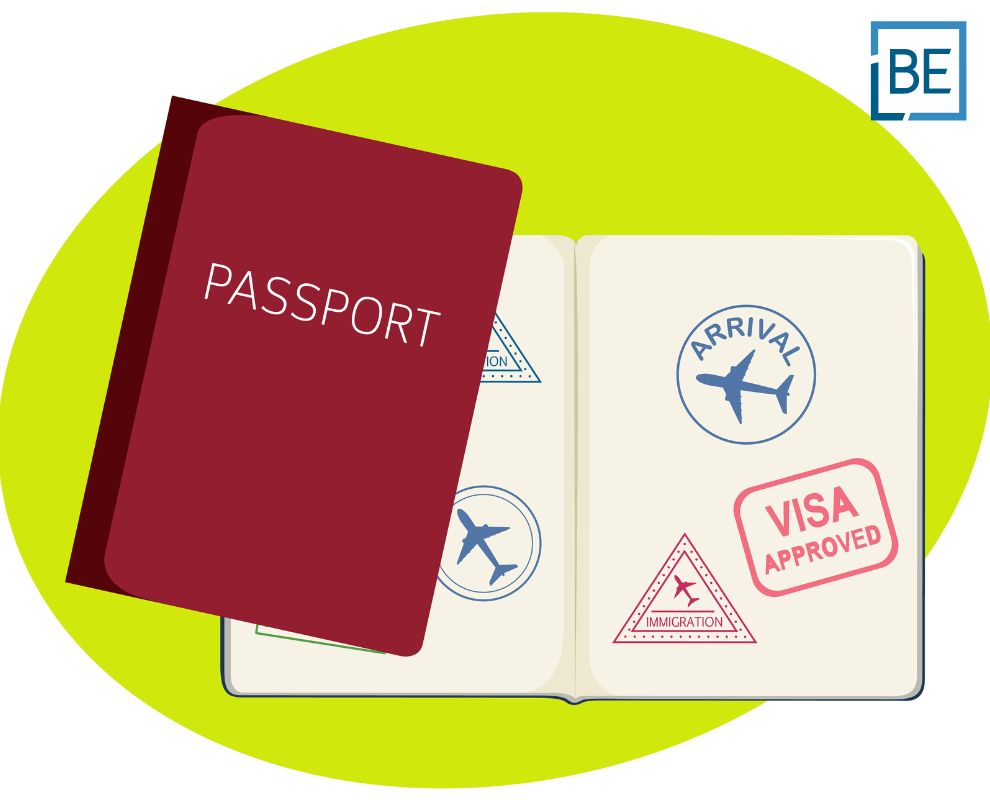
What should you do if overstay visa Vietnam?
What should you do if overstay visa Vietnam? Overstaying your visa in Vietnam is a serious matter and a violation of Vietnamese immigration law. It can lead to fines, deportation, and even a ban from re-entering the country in the future. The most crucial thing to do is to act immediately.

What should you do if overstay visa Vietnam?
Here’s a breakdown of what you should do and the potential consequences if overstay visa Vietnam:
Immediate Action & General Advice if overstay visa Vietnam:
- Do NOT ignore it: The longer you overstay, the more severe the penalties become.
- Go to the Immigration Department: This is the most recommended course of action.
- Hanoi: 44-46 Tran Phu Street, Ba Dinh District
- Ho Chi Minh City: 335-337 Nguyen Trai Street, District 1
- Find the nearest Provincial Immigration Office if you’re elsewhere.
- Be Honest and Cooperative: Explain your situation truthfully to the immigration officers.
- Be Prepared to Pay Fines: You will definitely be fined. The amount depends on the duration of your overstay.
- Seek Professional Help (Recommended): Especially for overstays of more than a few days, or if your situation is complex, consider contacting a reputable local visa agent or legal consultancy specializing in immigration. They can guide you through the process, help with paperwork, and communicate with the immigration authorities on your behalf. This can significantly smooth the process and potentially minimize long-term negative impacts.
- Have your passport and relevant documents ready: This includes your original passport, the expired visa, and any other supporting documents (e.g., flight tickets, proof of emergency if applicable).
Consequences if overstay visa Vietnam:

The penalties vary depending on the length of the overstay visa Vietnam:
- Fines: This is the most common consequence. Fines range from VND 500,000 for a few days to VND 20,000,000 or more for extended overstays (e.g., over 90 days or a year).
- Less than 16 days: VND 500,000 – VND 2,000,000 (approx. $20 – $80 USD)
- 16 to 30 days: VND 3,000,000 – VND 5,000,000 (approx. $120 – $200 USD)
- 30 to 60 days: VND 5,000,000 – VND 10,000,000 (approx. $200 – $400 USD)
- 60 to 90 days: VND 10,000,000 – VND 15,000,000 (approx. $400 – $600 USD)
- More than 90 days: VND 15,000,000 – VND 20,000,000 (approx. $600 – $800 USD) or more.
- Note: These are approximate figures and can change based on regulations and individual circumstances.
- Blacklisting/Entry Ban: For longer overstays or repeated offenses, you may be blacklisted, meaning you are prohibited from re-entering Vietnam for a period (often 1-5 years, or even permanently in extreme cases). Your information will be shared with all Vietnamese diplomatic missions and border checkpoints.
- Deportation: You may be forcibly removed from the country. This usually comes with a ban on future entry.
- Imprisonment: In severe or extreme cases (e.g., very long overstays, combined with other violations), legal consequences can include imprisonment.
- Impact on Future Travel: An overstay record can negatively affect your ability to obtain visas for Vietnam and potentially other countries in the future.
See also: How to pay bills online in Vietnam?
Options if overstay visa Vietnam:
Generally, you have two main options after paying the fine if overstay visa Vietnam:
Obtain an Exit Visa and Leave Vietnam:
- This is typically the outcome for longer overstays where continued stay is not granted.
- The Immigration Department will issue an “exit visa” (a stamp in your passport allowing you to depart within a specific, short timeframe, usually 15 days).
- You must leave Vietnam within the validity of this exit visa.
- Important Note for Short Overstays (1-2 days): Some sources suggest that for very short overstays (1-2 days), you might be able to pay the fine directly at the airport upon departure (around VND 500,000). However, this is not the formal, recommended method, and it often leads to a mark on your passport that could cause issues for future entries. Going to the Immigration Department beforehand is always safer.
Extend Your Visa (if eligible and approved):
- For shorter overstays or if you have a compelling, accepted reason (e.g., medical emergency, flight cancellation with proof), the Immigration Department might allow you to apply for a visa extension after you pay the overstay fine.
- This allows you to legalize your stay and avoid a departure.
- You will need to meet standard visa extension requirements (valid passport, temporary residence declaration, and potentially sponsorship documents if it was a business or work visa).
- The processing time is usually 5-7 working days.
Key Takeaways:
- Prevention is Best: Always be aware of your visa’s validity period. Set reminders!
- Act Quickly: The moment you realize you’ve overstayed, take immediate action.
- Go to the Immigration Department: This is the official channel to resolve the issue.
- Be Prepared for Fines: Have sufficient local currency (VND) on hand.
- Consider an Agent: For complex cases, a local visa agent or lawyer can be invaluable.
Remember that Vietnamese immigration laws are strict. Do not attempt to leave the country without addressing the overstay, as you will be stopped at the airport and face significant problems.
What should you do to extend visa if overstay visa Vietnam?

Here’s a general guide on how to extend your visa in Vietnam:
Key Information & Important Considerations:
- Extension vs. Renewal:
- Visa Extension: You receive a stamp in your passport indicating a new permitted stay duration. You don’t get a new visa sticker. This is generally cheaper.
- Visa Renewal: You are granted a new visa sticker and stamp in your passport with a new duration. This is typically more expensive as it involves new stamping and sticker fees. The Immigration Department decides whether to grant an extension or renewal based on your case.
- Time Sensitivity: Apply at least 7-10 working days (preferably 2 weeks for a 3-month visa) before your current visa expires. Processing typically takes 5-7 working days.
- Validity: The extension duration depends on your original visa type and nationality. Tourist visas are usually extended for 15-30 days, while business visas can be extended for 1-3 months, and sometimes up to 1 year (if tied to a work permit).
- Single Entry: Extended visas are generally for single entry. If you leave Vietnam, you’ll need a new visa to re-enter.
- Temporary Residence Registration: Ensure your temporary residence is properly registered with the local police where you are staying. Hotels and serviced apartments usually do this automatically, but if you’re staying in a private residence, the homeowner is responsible. Proof of this registration might be required.
- Passport Validity: Your passport must be valid for at least 6 months from the date of your requested extension and have at least 2 blank pages.
General Steps to Extend Your Visa if overstay visa Vietnam:
You have two main options:
Option 1: Apply Directly at the Immigration Department (DIY)
This is the official method and generally cheaper, but can be more complex and time-consuming as you navigate the bureaucracy yourself.
- Determine Eligibility and Required Documents: This is the most critical step. Requirements vary by visa type:
- General Documents (for all types):
- Original Passport (valid for 6+ months, 2+ blank pages).
- Your current valid Vietnam visa (sticker or e-visa printout).
- Entry stamp information.
- Completed Application Form for Visa Issuance, Supplement, Amendment of Visa, and Extension of Temporary Residence (Form NA5). You can often get this form at the Immigration Department or download it online.
- Proof of temporary residence registration from local police (or a printout of the online declaration if applicable).
- Additional Documents (Specific to Visa Type):
- Tourist Visa (DL): Generally, a letter or guarantee from a Vietnamese travel agency that sponsored your original visa or is willing to sponsor the extension. This is a common requirement for tourist visa extensions.
- Business Visa (DN1, DN2), Work Visa (LD), Investment Visa (DT):
- Sponsoring company documents: Notarized copy of the company’s Business Registration Certificate/Investment Registration Certificate.
- Letter of introduction from the sponsoring company.
- Proof of your work permit (if applicable) or work permit exemption certificate.
- A guarantee form for visa extension/renewal signed and sealed by the company’s legal representative.
- Visa for Visiting Relatives (TT):
- Documents proving family relationships (e.g., legalized marriage certificate, birth certificate).
- Original or notarized copy of the sponsoring family member’s passport and valid Vietnamese visa/TRC/Work Permit.
- General Documents (for all types):
- Submit Documents: Go in person to one of the main Immigration Department offices:
- Ho Chi Minh City:
- Immigration Department (A08) – Ministry of Public Security: 333-337 Nguyen Trai Street, District 1.
- Ho Chi Minh City Public Security Immigration Office: 196 Nguyen Thi Minh Khai Street, District 3.
- Hanoi: 44-46 Tran Phu Street, Ba Dinh District.
- Da Nang: 7 Tran Quy Cap Street, Hai Chau District.
- Check their working hours, usually Monday-Friday, often with Saturday mornings.
- Ho Chi Minh City:
- Pay the Fee: If your application is accepted, you will pay the extension fee. Fees vary based on the duration of extension and whether it’s an extension or renewal. (e.g., a single entry extension typically around $10 USD for government fee, but agent fees are extra).
- Receive Result: You will be given a receipt and an appointment date (usually 5-7 working days later) to collect your passport with the new visa stamp/sticker.
Option 2: Use a Local Visa Agent/Consultancy (Recommended for ease)
This is the most common and often recommended approach for foreigners as it simplifies the process and avoids language barriers and potential mistakes.
- Contact a Reputable Agent: Search online for “Vietnam visa extension agency” or “visa agent Vietnam” in your city (e.g., Ho Chi Minh City, Hanoi, Da Nang). Look for agencies with good reviews and clear pricing.
- Provide Required Documents (Scanned Copies First): The agent will ask for scanned copies of your passport, current visa, entry stamp, and sometimes a photo. They will assess your eligibility and advise on specific requirements.
- Send Original Passport: Once eligibility is confirmed, you’ll send your original passport to the agent (either in person or via trusted courier).
- Pay Service Fee: You’ll pay the agent’s service fee (which includes their profit and the government visa fee). This is usually higher than doing it yourself but saves significant time and hassle.
- Agent Handles Submission: The agent will prepare all necessary paperwork, submit it to the Immigration Department, and track the process.
- Receive Passport: The agent will inform you when your passport is ready for collection with the extended visa.
